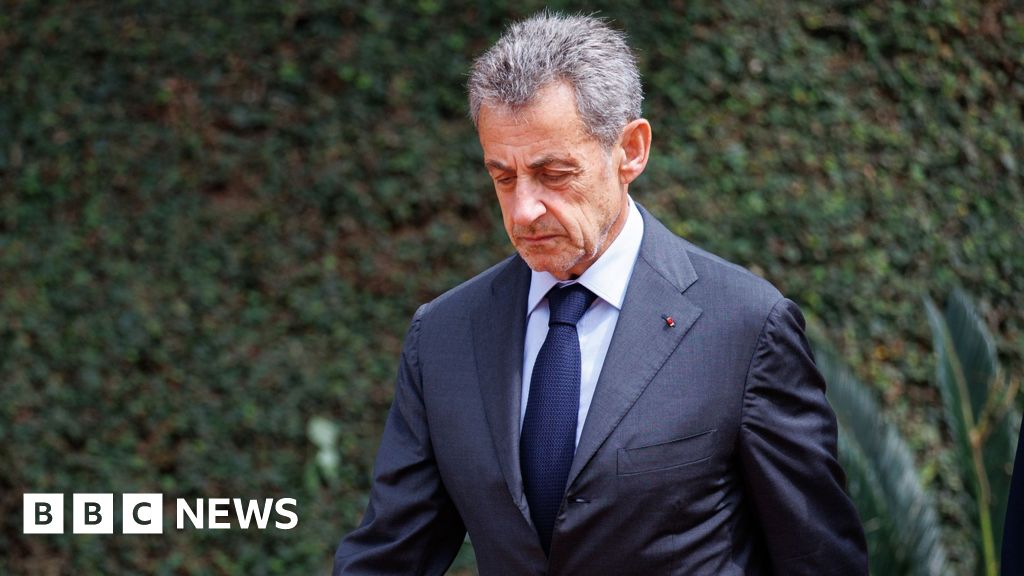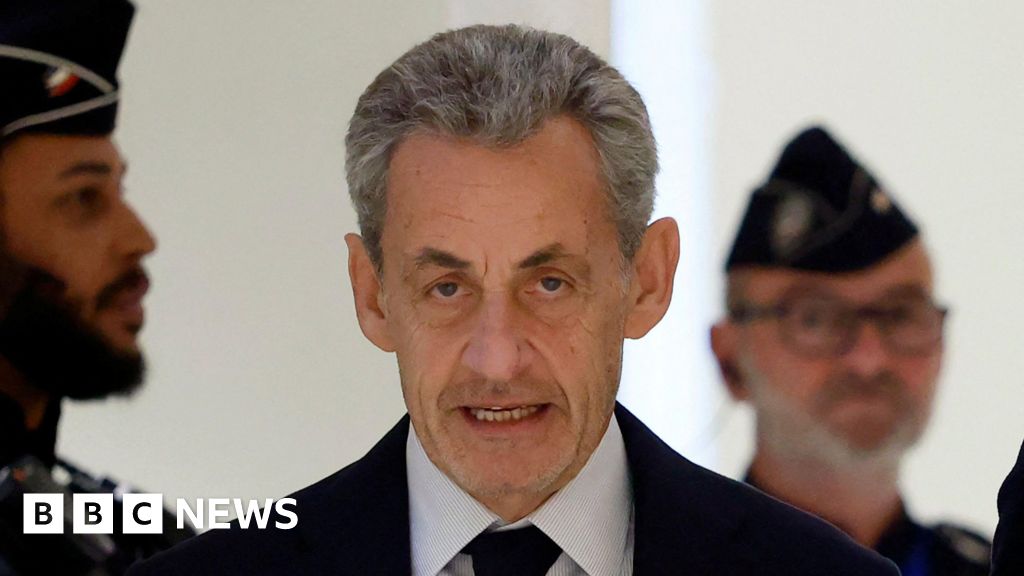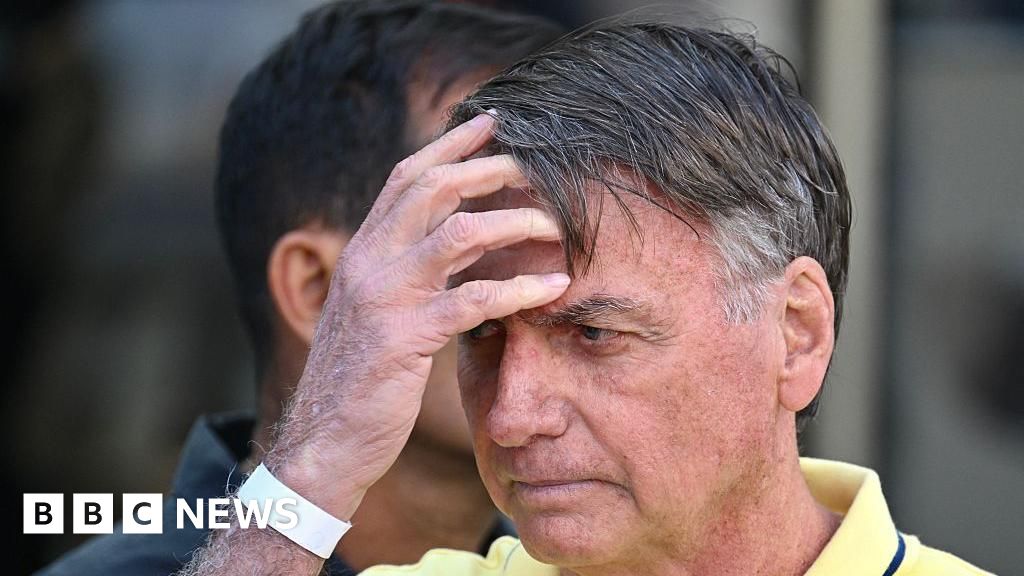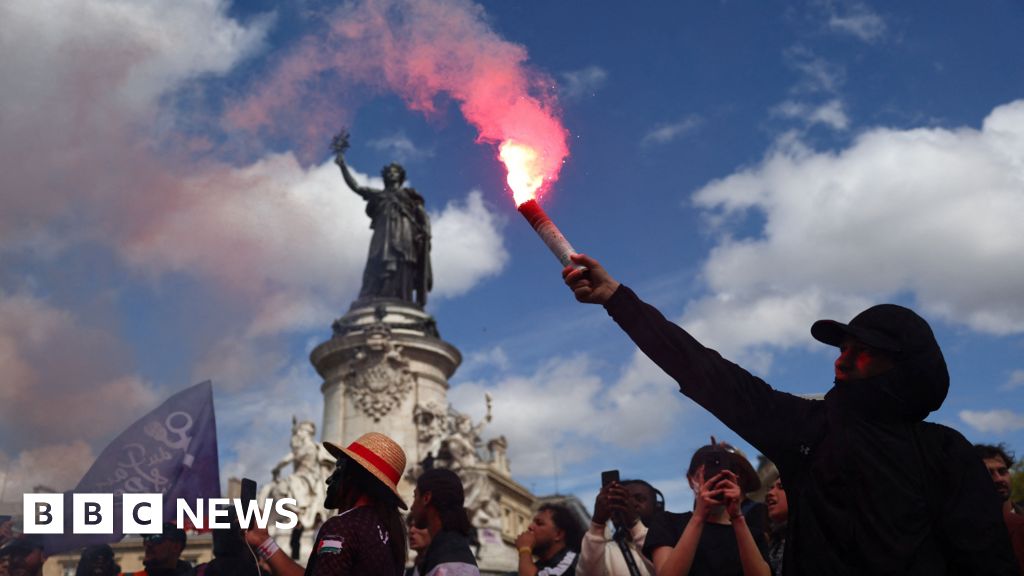Nicolas Sarkozy Sentenced to Prison for Corruption and Abuse of Power

Introduction
In a historic ruling, former French President Nicolas Sarkozy has been sentenced to 5 years in prison for conspiracy. This comes after he was found guilty of seeking campaign funds from the late Libyan dictator Moammar Gaddafi back in 2007. This makes him the first modern French president to serve jail time, marking a significant moment in the country's political history.
Key Details
Sarkozy's conviction comes after a lengthy investigation into his ties with Gaddafi and allegations of receiving illegal campaign funds. The investigation revealed that he had accepted millions of euros from Gaddafi, which he used to fund his successful presidential campaign. This raised questions about the integrity of Sarkozy's presidency and the true extent of his relationship with Gaddafi.
Despite his denial of any wrongdoing, the court found Sarkozy guilty of corruption and abuse of power. This ruling has sparked a significant debate in France, with some criticizing the country's political system and others applauding the justice system for holding a powerful figure accountable.
Impact
The conviction of a former French president is a significant blow to the country's political reputation, both domestically and internationally. It raises concerns about the influence of money in politics and the need for stronger regulations to prevent similar cases in the future. This ruling also sets an important precedent for holding powerful individuals accountable for their actions, regardless of their status
About the People Mentioned
Nicolas Sarkozy
Nicolas Sarkozy, born in Paris in 1955 to a Hungarian immigrant father and a French mother of Greek Jewish heritage, is a French politician and lawyer who served as President of France from 2007 to 2012.[1][2][3] He qualified as a lawyer in 1981 after studying political science at the Institut d'Études Politiques in Paris and began his career as a councilor in Neuilly-sur-Seine in 1977, becoming mayor there from 1983 to 2002.[1][3][4] Sarkozy held key government roles under conservative administrations, including Budget Minister and spokesperson (1993–1995), Interior Minister (2002–2004 and 2005–2007), and Finance Minister (2004–2005).[1][3][4] He led the Union for a Popular Movement (UMP) party from 2004 to 2007 and rebranded it as Les Républicains in 2015.[1][3] In 2007, he won the presidential election, defeating Socialist Ségolène Royal with 53% of the vote in the runoff, promising economic reforms like tax cuts, labor market liberalization, and closer U.S. ties.[1][3][4] Early achievements included tax relief on overtime, restrictions on strikes, and a constitutional limit to two presidential terms.[1] As president and ex officio Co-Prince of Andorra, Sarkozy advanced conservative policies on immigration and security, including a burqa ban.[6] He married singer Carla Bruni in 2008.[4] Post-presidency, he ran unsuccessfully in the 2016 Republican primary.[1] In recent years, Sarkozy faced legal challenges, becoming modern France's first former leader incarcerated following a 2025 conviction, marking a stark decline for the once-energetic figure nicknamed "President Bling-Bling."[6] He remains a polarizing conservative voice.[1][6]
About the Organizations Mentioned
French President
The **French President** is the head of state of France under the Fifth Republic, serving as the highest-ranking official and representing the nation both domestically and internationally. Established by the 1958 Constitution, this office embodies a semi-presidential system blending presidential and parliamentary features, with significant executive authority complemented by a prime minister who manages day-to-day government affairs[5][6]. The president is elected by direct universal suffrage for a five-year term (reduced from seven years in 2000). Key responsibilities include appointing the prime minister and ministers, chairing the weekly Council of Ministers meetings where governmental policies and bills are discussed, and enacting laws. The president also serves as the commander-in-chief of the armed forces with exclusive authority over nuclear weapons and presides over national defense committees[2][5][7]. Importantly, the president guarantees national independence, territorial integrity, and the respect of international treaties[1][2]. While the government generally determines domestic policy, the president plays a pivotal role in guiding national defense and foreign policy and ensuring the smooth functioning of state institutions. The president can dissolve the National Assembly, call referendums on certain issues, and assume exceptional powers in times of crisis[1][5]. The office also holds a unique international role as the co-prince of Andorra alongside the Bishop of Urgell, appointing representatives to govern this microstate[2]. Historically, French presidents have wielded varying degrees of power depending on parliamentary majorities and political cohabitation—periods where the president and prime minister come from opposing parties, shifting executive authority more toward the prime minister[4][6]. Notable achievements of the presidency include navigating France through critical global events, shaping European integration, and modernizing French institutions. Currently, the presidency remains central to French political life, balancing symbolic leadership with substantial executive powers, particularly in foreign affairs and defense, while adapting to evolving domestic political dynamics[3][6][9].

















